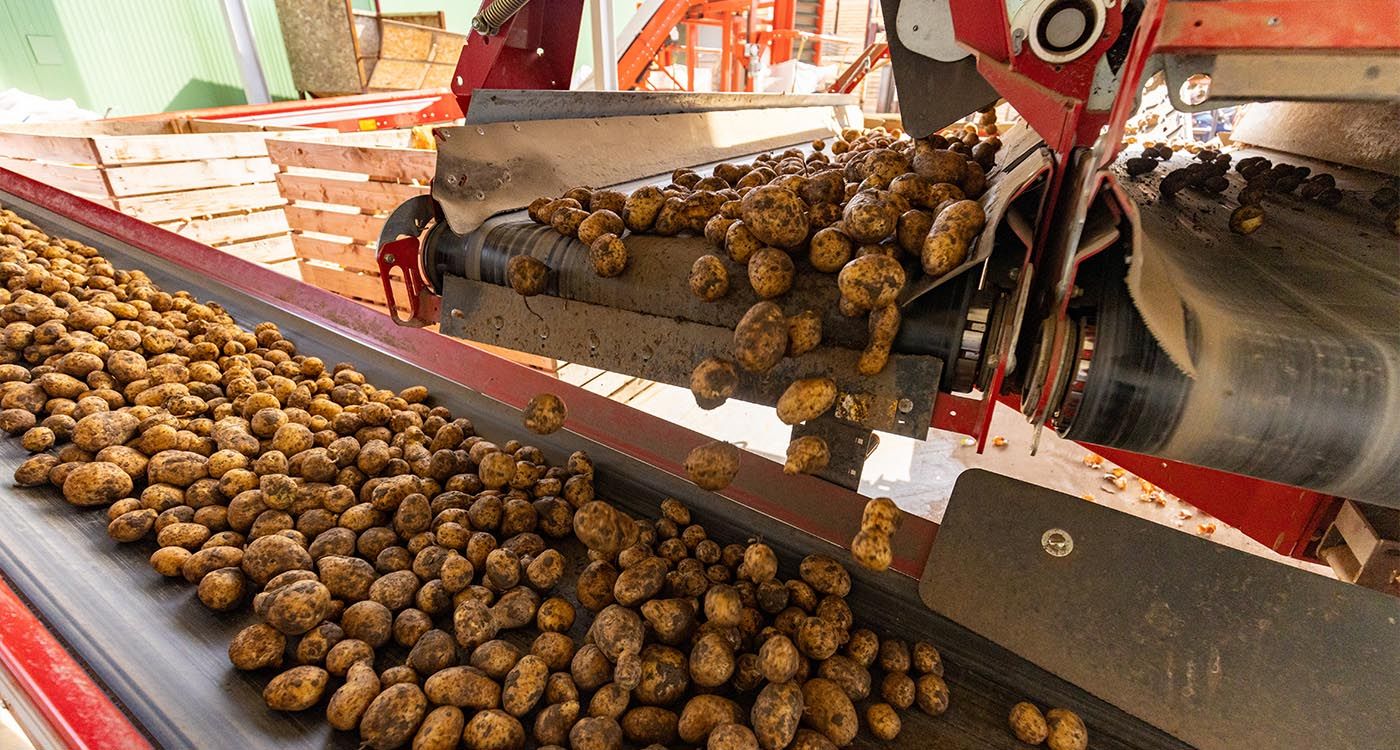
In Lebanon, the potato is more than a staple: it’s an economic battlefield and sometimes… a bitter joke. Overproduction, foreign competition and limited exports leave farmers caught between selling their harvest and watching it rot in warehouses.
In a country where even bread is becoming a luxury, one might think the potato – king of family meals and star of mezze – is guaranteed a smooth ride. Yet behind every plate of crispy “batata” lies the story of farmers digging the soil… and digging deeper into debt.
The Roots of the Problem
According to the Ministry of Agriculture, potatoes are among Lebanon’s top agricultural products. In 2022, the country harvested a record 676,000 tons. The crop covers 24,022 hectares, with an average yield of around 28 tons per hectare. The Beqaa Valley remains the undisputed leader, producing 65 to 70% of the total, followed by the Akkar plain with 25 to 30%.
This growth is striking compared to 1970, when production barely exceeded 100,000 tons, then plummeted to 30,000 tons during the war, before rebounding to nearly 435,000 tons in the 2000s. Current projections estimate 685,000 tons by 2026, a 1.5% annual increase, while domestic consumption is expected to reach 315,000 tons, up 0.9% per year.
But producing is one thing, selling is another: with high fertilizer costs, skyrocketing fuel prices needed for irrigation and transport, and a volatile market, farmers often end up selling their potatoes at a loss. “We farm the land, but the land ends up farming us,” a Beqaa Valley producer jokes bitterly.
The Tricky Issue of Exports
Despite these sizable harvests, exports remain limited. According to available data, only about 37,000 tons – roughly 5% of total production – are sold abroad. By comparison, Israel exports nearly 32% of its crop overseas, and the Netherlands 35%. Lebanon once fared better: in 2004, exports reached around 45,754 tons, valued at $8.3 million, mainly to Arab countries.
Since then, exports have been erratic: $30,470 in 2016, rebounding to $20,700 in 2022, but plunging to just $7,767 in 2024, according to the Ministry of Economy.
Agriculture Minister Nizar Hani summed up the challenge to This is Beirut: “The key market remains the Gulf, but accessing it requires going through Saudi Arabia overland. Shipping by sea is too expensive.” He also noted that the crisis is global: from Europe to Pakistan, overproduction makes it difficult to move the crop. On Wednesday, he even met with frozen potato manufacturers to encourage sourcing from local producers. The outcome is mixed: while sales are moving forward, cold storage warehouses remain full.
Good news, however: the Ministry of Agriculture has struck a deal with the European Union. The goal is to allow Lebanese potatoes to be exported to Europe… but only during the months when Europe isn’t producing, and provided that very strict sanitary standards are met. In short: farmers must hit the perfect window and hope prices align.
Heavyweight Competition
Inside the Lebanese market, farmers face yet another battle: uncontrolled imports. Shipments from Egypt or Syria regularly flood the markets at unbeatable prices, crushing local production. “Lebanese potatoes are like our politics: always in competition, rarely protected,” adds the farmer from Akkar.
Yet, it’s not all bleak. Potatoes remain among the most sought-after products in Lebanon, starring in hundreds of recipes, from family mashed potatoes to fast-food fries. With a smarter export strategy, stricter import controls and international promotion, Lebanon could turn this humble tuber into a real economic asset.
And let’s not forget that the potato is resilient and tenacious, growing even in the harshest soils – much like the Lebanese themselves. The question is whether the state will finally give its farmers more than just peeled promises…




Comments